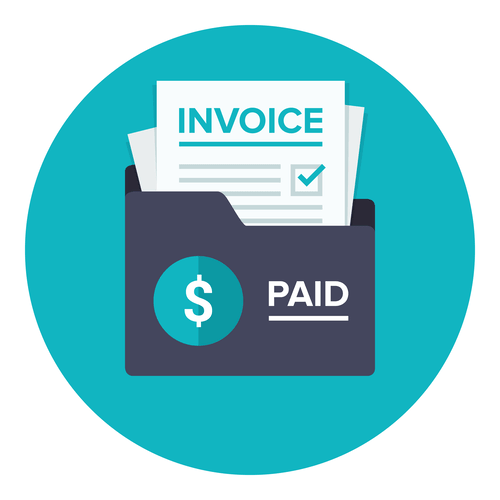
That’s why heads like CFO and controller play a very important part in the functioning and decision-making of an organization. A company should start thinking about bringing on a part- or full-time controller when they reach $1 to $5 million in annual revenue. It is typically wise to go for a part-time controller at first, though firms should plan to transition https://www.bookstime.com/ to a full-time controller when they approach $10 million in annual revenue. A confident controller will protect their company’s assets, monitoring all the books, reports and filings for errors and potential fraud. They don’t usually crunch numbers or run reports, they offer valuable insights that help drive growth and inform the company’s next steps.

Chief accountant vs controller overview
- Networking with professionals in the industry and building relationships with other professionals in the accounting and finance fields can also be valuable in preparing for a management position.
- Therefore they are mainly the people from accounting backgrounds instead of the finance and banking background of a CFO.
- One such position is the controller (sometimes spelled « comptroller, » but always pronounced « controller »), who is the person responsible for a firm’s accounting-related activities.
- One of those important divisions is that of a controller responsible for mainly managing the day-to-day finance operations, including accounts receivables and accounts payable.
- Across all of the duties, a controller often works most with the collection, analysis, and consolidation of financial data.
It includes performing internal audits, reviewing financial statements and reports, and ensuring that the company’s financial systems and procedures comply with legal and regulatory requirements. They also play a crucial role in identifying potential risks and opportunities and recommending mitigation strategies. CAOs also play a crucial role in identifying potential risks and opportunities and recommending mitigation strategies. The most common are business controllers and corporate controllers, who handle entire accounting systems for their employers. For smaller companies, this means setting up the accounting infrastructure and performing the bookkeeping, whereas larger companies use controllers in an overseer role.
- Despite its boring reputation, accounting consistently ranks among the most satisfying careers.
- Also, a company may employ a junior status to candidates that must first demonstrate proficiency in the role before getting promoted.
- They are involved in the budget setting activity at the start of the company’s fiscal year.
- Few accountants ever worry about burning out or feel compelled to switch industries, and many will move into positions of prominence and importance in an organization.
- In terms of duties and responsibilities, there is no practical difference between the two titles.
- Responsibilities that fall under the CFO’s umbrella are more focused on strategic management of the company’s resources and data-driven decision-making than tracking day-to-day financial transactions.
CFO: The Strategizer
If you have more than a handful of transactions every month, you need someone knowledgeable to enter that financial data and ensure your company’s financial records are accurate and up-to-date. Updated data makes it much easier to stay on top of your receivables and file taxes. A controller must often have around at least 10 years of professional experience, though larger public companies will often require more. Though an accounting or finance license is not always required, a controller may need to carry a CPA license. A controller’s role is heavily (if not exclusively) rooted in dealing with actual transactions. Overseeing both revenue and expense reporting, a controller often does not deal in theory.
Accountant vs. Controller

A person’s education level, certifications, supplementary talents, and length of time spent working in their field are just some of the crucial aspects that can have a significant impact on the salary ranges they can expect. Controllers typically report directly to the CFO (except in cases where there is a COA) and usually lead a team of accountants, bookkeepers, and accounts receivable/payable clerks. That’s why outsourced accounting and CFO services are a lifeline for growing businesses. If bookkeeping has you baffled, cash flow is a catastrophe, and strategy is sparse, schedule a call with Slate. You’ll have access to skilled and experienced professionals helping you make critical business decisions while running your business the way you want. Contact Signature Analytics today to find out how we can help you optimize your company’s financial future.
Controller vs. Chief Accounting Officer: Which Management Position Suits You Best – Recommended Reading
Meanwhile, an FP&A director leverages historical data to devise future plans that may or may not materialize. These plans may rotate on a quarterly basis if the company decides to reforecast any projections. The controller of an organization may partake in staff recruitment, selection, and training, since the controller often has several finance or accounting chief accounting officer vs controller managers reporting directly to them. The position requires appraising job results, leading employees, and performing disciplinary actions as necessary. The top three skills for a chief accountant include external auditors, reconciliations and general ledger accounts. The most important skills for a controller are CPA, payroll processing, and reconciliations.
They take charge of monitoring and recording financial transactions based on corporate regulations and policies. Senior-level accountancy jobs require a CPA designation and maybe even a certified management accountant (CMA), chartered financial analyst (CFA), or other professional designation. Senior financial accounting and reporting jobs might need three to six years of work experience, while tax accountants or junior auditors might only need one to three years after passing the CPA exams. The controller is responsible for maintaining accurate books and reports and for running the day-to-day accounting operations of the business.
- The controller may report material budgeting variances or expenditure variances to upper management.
- Both controllers and CAOs are accomplished leaders and experts in finance and accounting, but there are subtle contrasts that make these two roles complementary to one another.
- However, accountants work famously long and intense hours during tax season (roughly February to April) before taking some time off during spring and summer.
- With an outsourced financial controller on your team, you will have access to expertise in accounting and bookkeeping when you need it.
- BLS data projects the number of financial manager jobs will grow 15% between 2019 and 2029.
- Comptrollers and controllers have the same position, but controllers work for businesses and comptrollers work for nonprofits and public sector organizations—often for local, state, and federal governments.
Controller vs. Other Financial Roles
The Growing Demand for Remote Accounting Jobs: How to Land One


0 Comment